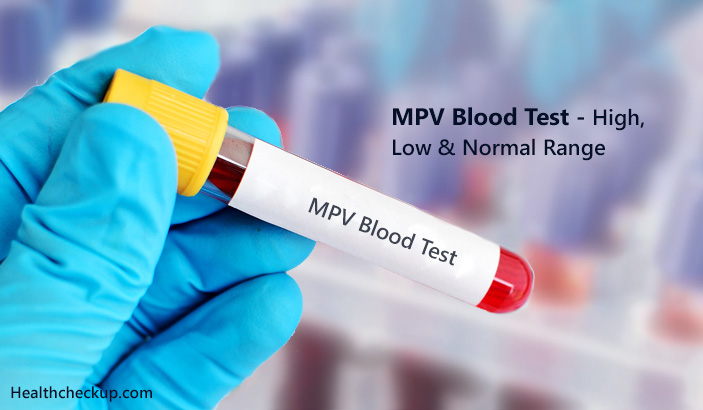You probably have seen the term MPV in the middle of your complete blood work results. If you are reading today’s article, you are probably wondering what MPV stands for. You are probably even more curious if you have seen your test results showing a lower or higher than normal MPV levels. Let’s explain what is MPV blood test could mean, shall we?
What Does MPV Mean In A Blood Test?
MPV stands for mean platelet volume, which is referring to the average size of the platelets. Platelets are one of the three types of blood cells, including white and red blood cells. Platelets play a significant role in the process of blood clotting, making sure that when an injury is present, the bleeding is stopped in order to prevent you from bleeding out and losing a huge amount of blood.
What Is MPV Blood Test Normal Range?
MPV is measured in platelet count per microliter (mcL) of blood. In a healthy individual, the MPV blood test normal range is anywhere between 150,000 to 400,000 mcL.
Why Is MPV Blood Test Done?
An MPV blood test is usually a part of a CBC or Complete Blood Count test. CBC represents an umbrella term that includes a series of tests that are used to measure and analyze the characteristics of the different blood cells. The MPV blood test is used to monitor or detect various bleeding disorders, including any diseases of the bone marrow. If there are any unexplained bruising, red spots on the skin or prolonged bleeding time in case of an injury or a cut, an MPV blood test is usually ordered.
How Is The Test Performed And Is Any Special Preparation Needed?
An MPV blood test is like any other blood test. It involves drawing blood by using a sterile needle that is inserted into a vein in your arm after the skin has been cleaned using alcohol. It is a safe and simple procedure that only takes a few minutes and does not pose any big risks or side-effects. Minimal pain can be felt during the procedure, and a mild bruising and tenderness may develop around the area where the blood has been drawn.
You do not need any special preparation for an MPV blood test. However, you need to inform your doctor about any prescribed or over-the-counter medications, including dietary supplements that you may have been using. Inform your doctor if you are currently pregnant, menstruating, or using birth control pills. All of these factors can influence the MPV blood test results.
Causes Of MPV Blood Test High Results
If your results show a higher than normal MPV, that means that your platelets are larger than normal. This is a sign that something is causing your bone marrow to produce more platelets than needed since the new platelets then to be larger than the older ones. If the cause for your MPV blood high is unknown, the condition is called a primary thrombocytosis. Secondary thrombocytosis is caused by an infection or other condition that is causing the excess platelets to be produced. An MPV high can also be caused by a variety of other health issues, including;
- Cancer, such as lung, breast, stomach, and ovarian cancer
- Anemia, including iron-deficiency and hemolytic anemia
- Hyperthyroidism
- Inflammatory disorder, such as rheumatoid arthritis and inflammatory bowel disease
- Vitamin D deficiency
- Splenectomy, which is the removal of the spleen
- Diabetes
- Stroke etc.
Causes Of Low MPV Blood Test Results
An abnormally low MPV points out that the platelets are smaller than the average-sized platelets. Since smaller platelets tend to be older, a low MPV may point out that the bone marrow is not producing enough new platelets. When a lower than normal MPV is present, the patient may experience spontaneous bleeding, increasing the risk of death for anyone who has experienced a traumatic injury. A low MPV alone may not point to any serious health problem; however, when present in combination with other abnormal CBC results that can mean that one of the following issues is present;
- Inflammatory bowel diseases, such as Crohn’s disease or ulcerative colitis
- Use of chemotherapy
- Aplastic anemia
- Old age which causes a normal decline in MPV which is not considered to be dangerous if there are no other symptoms being present
- A bacterial infection
- Bone marrow hypoplasia
- Liver cirrhosis
- Cancer, such as leukemia, etc.
Conclusion
MPV, or mean platelet volume, may not point to anything serious in case its levels have been increased or decline or it may be the first sign that your body is telling you that something is wrong. An MPV blood test is a standard procedure as it is done as a part of the complete blood work. Although no special preparation is needed, this test can reveal a lot about your current state of health.
Doctor, author and fitness enthusiast, Ahmed Zayed, MD, is a surgery resident with a passion for helping people live a happy healthy life. He is the author of numerous health-related books and contributor to several medicine, health and wellbeing websites.









